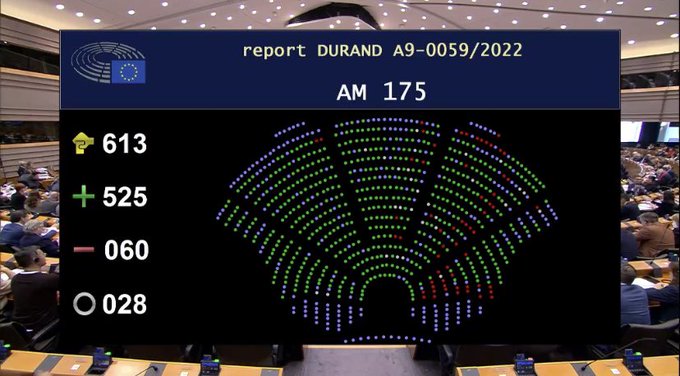Raison d'être policy
It was indeed a spirit of " refoundation" through raison d'être that presided over the Projet de loi pour lA Croissance et la Transformation des Entreprises, which was to become the PACTE law. For proof of this, we need only recall the defense and illustration undertaken by Bruno Le Maire, the bill's bearer, during the final discussions at the National Assembly: " Every company will be able to give meaning to its activity, to that of its employees and to that of our compatriots ". The Minister of the Economy wanted to see in this evolution of the Civil Code, a (r)evolution to come: a "new capitalism". The raison d'être is "at the heart of 21st-century capitalism". The French government must therefore "set an example" and ensure that the companies in which it is a shareholder have a raison d'être by 2020. This is what Bruno Le Maire announced during an initial assessment of the Pacte law presented on Thursday, September 12. The public investment bank, Bpifrance, has been called on to do the same with the companies in which it holds stakes. In an interview with La Croix newspaper on September 5, 2019 he asserted that "The raison d'être is the meaning that companies will give to their economic activities, it is their way of participating in a better functioning of society. The general interest and the economic interest must no longer clash. Europe must be the continentof responsible capitalism. To find out more about the scope and future prosperity of raison d'être, read my article in Forbes: Raison d'être d'entreprise, un miroir aux alouettes? But before looking to the future, it's a good idea to look to the past: how did we get here? How did this theme of raison d'être, still unknown a year ago, invade the field of public debate on the place and role of companies in society? Here's a brief summary of previous episodes!
The report entitled: "L'entreprise, objet d'intérêt collectif" was submitted on March 9, 2018 by Nicole Notat, former General Secretary of the CFDT, and Jean-Dominique Sénard, then Chairman of the Michelin Group.
Through the notion of corporate raison d'être, the Notat-Sénard report not only targeted the corporate model as defined by the French Civil Code, but also a certain conception of Anglo-Saxon-style capitalism: disintermediated and financialized. There will always be those who accuse corporate raison d'être of being no more than a cosmetic aggiornamento, no more than a form of publicity, but at the same time, there will always be legal experts (and senators!) to underline the "legal risk" that it can impose on companies and their managers. In principle, then, the corporate raison d'être must carry something like the seeds of upheaval...
Purpose in the text
The raison d'être is defined first and foremost in relation to the company's corporate purpose, which it is intended to exceed and complement. Under traditional law, a company was formed by one or more persons " who [agreed] by contract to allocate property or their industry to a common enterprise, with a view to sharing in the profits or benefiting from the savings that [might] result " . The Notat-Sénard report set out to go beyond this classic, restrictive vision of the corporate purpose of a company, by making a twofold effort to broaden and redefine it. The first semantic operation consisted in distinguishing the company's "social interest" from that of its owners. From this social interest - which cannot be reduced to the sum of the individual interests of these owners - we then moved on - by successive enlargements to include all the company's stakeholders - to the collective interest. At the same time, the report stated that every company has " a raison d'être that is not reducible to profit" [...] This is a guide for determining the company's strategic orientations and the actions that flow from them. A strategy is aimed at financial performance, but cannot be limited to that. [...] The notion of "raison d'être" is in fact a return to the original meaning of the term, that of the early days of the public limited company, when this purpose was in the public interest. Just as it has its own will and its own interests distinct from those of its associates, the company has a raison d'être ". Raison d'être, as defined in the report, was therefore intended to go beyond the simple economic rationale of creating value through the production of a good or service. In principle, raison d'être is intended to give meaning to the company's economic activity by placing it within the framework of society, of the company's participation in the social body. Critics of the very notion of raison d'être argued that the creation of value was the only raison d'être a company needed, arguing that it thus participated in economic activity and thus in the common good. But raison d'être has its reasons, which economic reason ignores... and its defenders eventually prevailed. To find out more about the genealogy of raison d'être, I invite you to read the article by Sophie Chassat, philosopher and partner at WEMEAN, on our blog: A short genealogy of corporate raison d'être
The raison d'être in law
The PACTE law introducing the notion of "raison d'être d'entreprise" into French law in the form of an amendment to Article 1835 of the Civil Code was definitively adopted by the National Assembly on April 11, 2019, after meeting with strong opposition in the Senate. Article 1833 of the Civil Code: "All partnerships must have a lawful purpose and be formed in the common interest of the partners."has been increased a second paragraph: "The company is managed in its social interest, taking into account the social and environmental challenges of its business."The new version of article 1835 of the French Civil Code stipulates that ". The articles of association must be drawn up in writing. In addition to the contributions of each partner, they determine the form, purpose, name, registered office, share capital, duration and operating procedures of the company. The bylaws may specify a raison d'être, consisting of the principles which the company sets out to uphold, and for which it intends to allocate resources in carrying out its activity. "The status of "company with a mission" has also been created. Article L 210-10 of the French Commercial Code specifies the conditions to be met in order to claim this status: " A company may publicly claim to be a société à mission if the following conditions are met 1° Its bylaws specify a purpose, as defined in article 1835 of the French Civil Code; 2° The company's bylaws specify one or more social and environmental objectives that the company is committed to pursuing in the course of its business. " 
But what are we to think?
By amending articles 1833 and 1835 of the French Civil Code, the PACTE law seems to introduce a break in the way we perceive the company: it is now seen in terms of its capacity to be part of an environment that goes beyond it. We are moving away from the solipsistic model of the company as seen in liberal theory: input / added value / output, to enter a new paradigm, that of the living company: The company as an organism within an ecosystem with its own logic and existence, embedded in a social fabric that both exceeds and encompasses it... Tomorrow, the articles of association of any company will be able to stipulate a raison d'être "made up of the principles which the company adopts and for the respect of which it intends to allocate means in the realization of its activity. " It is perhaps very simply in this link between principles and the means allocated to achieve them that real breakthroughs can take place. This will enable us to judge the extent to which it is translated into clear, concrete and measurable objectives, and the resources deployed to achieve them. We can also hold it to account if it intends to pay lip service to its principles, and not follow through on its commitment... Thomas Jeanneney, Head of Innovation & Digital @ WEMEAN.


